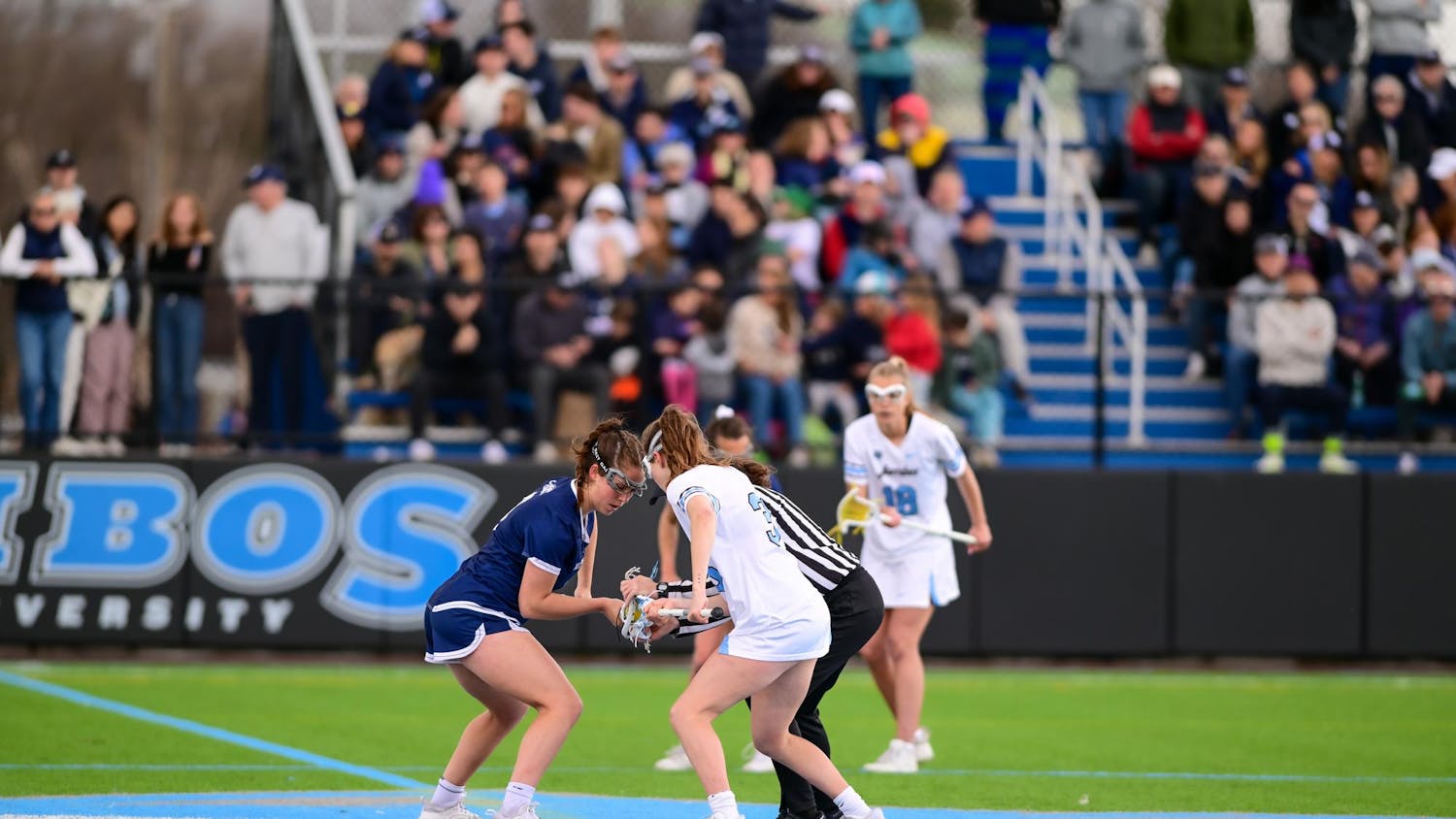In Berlin's historic Olympiastadion, host to the 2006 World Cup final, league leader Bayern Munich took on the struggling Hertha Berlin. Among the roaring fans was a red banner with white letters reading “Schämt Euch,” German for, “shame on you.” These were the words written by Bayern fans in protest of the upcoming 2022 Qatar World Cup. “15 thousand dead for 5,760 minutes of football,” the banner also said. Hertha fans also held a banner that condemned the tournament. About 400 kilometers west, Dortmund’s iconic yellow wall displayed a collection of critical banners, one clearly capturing the Bundesliga’s sentiment — boycott Qatar 2022.
The sickening reality is that a tournament lasting 28 days has come at the cost of thousands of lives of immigrant laborers. The so-called beautiful game has turned into a profit machine for the Qatari elite who will likely have front-row seats for the world’s greatest sporting spectacle.
Sixty-four games have been held on the back of decades worth of exploitation, inhumane conditions and alleged outright abuse. The Guardian estimates over 6,500 of the Indian, Pakistani, Nepalese, Bangladeshi and Sri Lankan migrant workers have died since the Gulf nation was controversially awarded hosting rights in 2010. As with most officially reported figures, this is likely an underestimation of the actual death toll and does not account for laborers from other African and Southeast Asian nations.
Migrant laborers in Qatar account for over 95% of its labor force and 90% of its population. Out of the 2 million migrant workers, half are employed in construction. A recent documentary by France 24 depicts these “prisoners of the desert” and the woeful state of their camp accommodations, far from the architectural marvels they’ve built: Compact rooms with no fans or air-conditioning, a lack of cooking facilities and unsanitary bathrooms leave many men hopeless.
The infamous Kafala system lies at the root of Qatar's exploitative practices. Under this sponsorship system, domestic workers are not protected under national labor laws and contracts and can vary from company to company. Passports can be confiscated, and certain attempts to flee are punishable by imprisonment or deportation. Although amendments to the sponsorship system have been made, namely changes in a worker’s ability to change jobs and the creation of a new minimum wage, a worker’s “legal status in Qatar remains tied to a specific employer,” according to the Human Rights Watch. These employers often remain in control of food and housing accommodations, both essential for survival in the scorching Gulf heat.
Players and managers across Europe have voiced their discontent with the tournament. Netherlands’ Head Coach Louis Van Gaal criticized FIFA’s argument of bringing the game to the Arab world to develop the sport, stating that the move is only about “money [and] commercial interests.” In late September, Denmark launched its World Cup kits with designs aimed at condemning the host nation. Danish manufacturer Hummel created a uniform that camouflages the team and company badges into the color of the jersey, aiming to minimize its presence at such a scandalous event. A special all-black design was also made to symbolize and mourn the losses of thousands of migrant workers.
For the LGBTQ community, Qatar offers another sizable hurdle as homosexuality can be punished by death as local police continue to brutally abuse members of the community. The fact that Qatar has promised more flexibility for incoming LGBTQ fans illustrates their continued belief in discrimination based on sexual orientation for their own citizens. Under article 285 of the national penal code, same-sex relations can result in seven years of prison while there have been multiple incidents of apparent arbitrary detention. A video published by the Australian team on Oct. 26 called for the decriminalization of homosexuality while the German Federation stated that their captain Manuel Neuer will wear a rainbow armband with the phrase “1 love” during their matches. Although these singular protests promote empathy and acceptance, they are not strong enough to force widespread change. FIFA itself must commit to investigating and working with the Qatari government to reform these regulations.
The bottom line is that Qatar should not be hosting the World Cup. Football is the world’s game, and it unites communities through a shared passion. Its power lies in its universality and in the fact that anyone can play and enjoy it. Every country has its values, and they must be respected, but if a nation cannot be inclusive, it doesn’t deserve the honor of hosting this tournament.
In a few weeks, millions will tune in as the tournament kicks off in the city of Al Khor, where the hosts will take on Ecuador. Once the games begin, people will forget the injustice and corruption embedded in Qatar’s hosting rights. Every four years, the world stands still as its footballing nations come together for a month-long festival of sport. Emotions will run high and history will be made, but we shouldn’t forget the true cost behind the glamour of this “beautiful” game.






